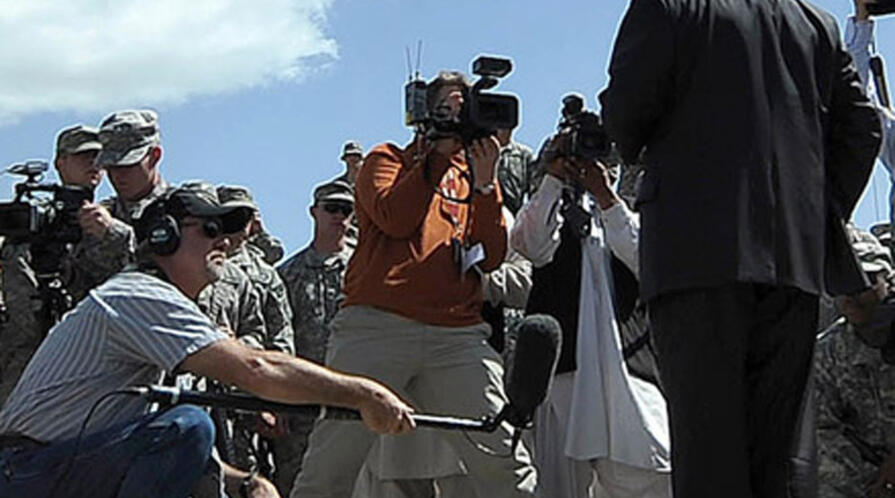Michael Sulmeyer: The Bob Gates management playbook
Michael Sulmeyer: The Bob Gates management playbook

Secretary of Defense Robert M. Gates’ January 6 announcement of major budget and program changes at the Pentagon was a watershed: it canceled several multi-billion dollar weapons programs, redirected $100 billion from old programs to new ones, and laid the groundwork for reducing the active-duty size of America’s ground forces after a draw-down in Afghanistan. But in light of the rumors that Gates will step down sometime this year, his remarks soon after the announcement also helped to consolidate one particular aspect of his reformist legacy: managing our nation’s vast military weapons budget.
Gates has navigated the Byzantine relationships that weave throughout the government and the private sector, including his own office, the military services, the Congress, and the defense industry. Over the last four years, he has personally assumed control of the Pentagon’s resource allocation process. His legacy will be an instructive playbook for several reasons.
First, accountability for the development and production of major programs stops with the Secretary; delegation does not means abdication. Gates has earned similar plaudits elsewhere: he took personal responsibility for the earliest and most public crisis of his first year, the unacceptable conditions at Walter Reed. As steward of the nation’s defense budget, he has been equally unflagging. When he lost faith in the Joint Strike Fighter’s program management, he dismissed the officer in charge and replaced him with a hard-charging 3-star general to signal the seriousness of attention with which weapons costs and performance must be treated. This, in stark contrast to business-as-usual at the Pentagon, where civilian subordinates negotiate with the military services, with the Secretary investing personal resources in only a handful of the most publicly-contentious programs.
Second, timing matters, and Gates uses timing for a crucial purpose: to promote transparency and a public dialogue about his decisions. He puts distance between his Pentagon announcements and the annual roll-out of the President’s budget request. Although his changes will be reflected in the President’s budget, these pre-announcements allow him and the military to initiate a conversation about military spending early, and before the President’s name is affixed to it. His adroit sensitivity to timing does the nation a real service, allowing us to focus on and debate how we equip our armed forces independent of the vast competing priorities on the political agenda.
These two lessons have led to a critical third: the importance of a constructive and open relationship with Congress. Congress has not and will not go along with every Gates proposal. But Gates realized early on that working with Congress on the often vexing troubles associated with our nation’s military-industrial complex carries far more advantages than drawbacks. His ability to generate consensus on controversial program decisions, such as halting production of the F-22 and canceling the development of the Expeditionary Fighting Vehicle, were against-the-odds triumphs over pork-barrel politics.
Every Secretary of Defense faces a similar budgetary conundrum as Secretary Gates currently does—the need to control defense spending while maintaining a first-rate and adaptable force—but the record of cutting unnecessary programs is mixed at best. Though Dick Cheney won praise for canceling the Navy’s egregiously over-cost A-12 stealth aircraft, his attempt to terminate the Marine Corps’s V-22 Osprey stalled in Congress. Even the A-12 kill was a pyrrhic victory, as his decision sparked such intense litigation that the legal dispute over the aircraft’s cancelation persists to this day, 20 years later. Indeed, the Supreme Court heard one aspect of the case this week.
Donald Rumsfeld took full advantage of rising defense budgets to direct investments in the critical areas of space, missile defense, ISR, but transformation in theory became addition in practice. The defense budget needn’t have been cut as the wars in Iraq and Afghanistan raged, but the Pentagon was too slow to adapt to actual war-fighting needs. Rumsfeld successfully canceled the Army’s overweight artillery system known as Crusader, but his relationship with Congress, even Republicans, was often strained, and his personal oversight of hundreds of billions of dollars in over-cost and under-performing weapons was episodic at best.
All the technology and weapons programs in the world will not win a war: only an expertly trained military with top leadership can do that. But Secretary Gates will leave a legacy of vigilance over our nation’s weapons of war. His successor would do well to emulate it.
